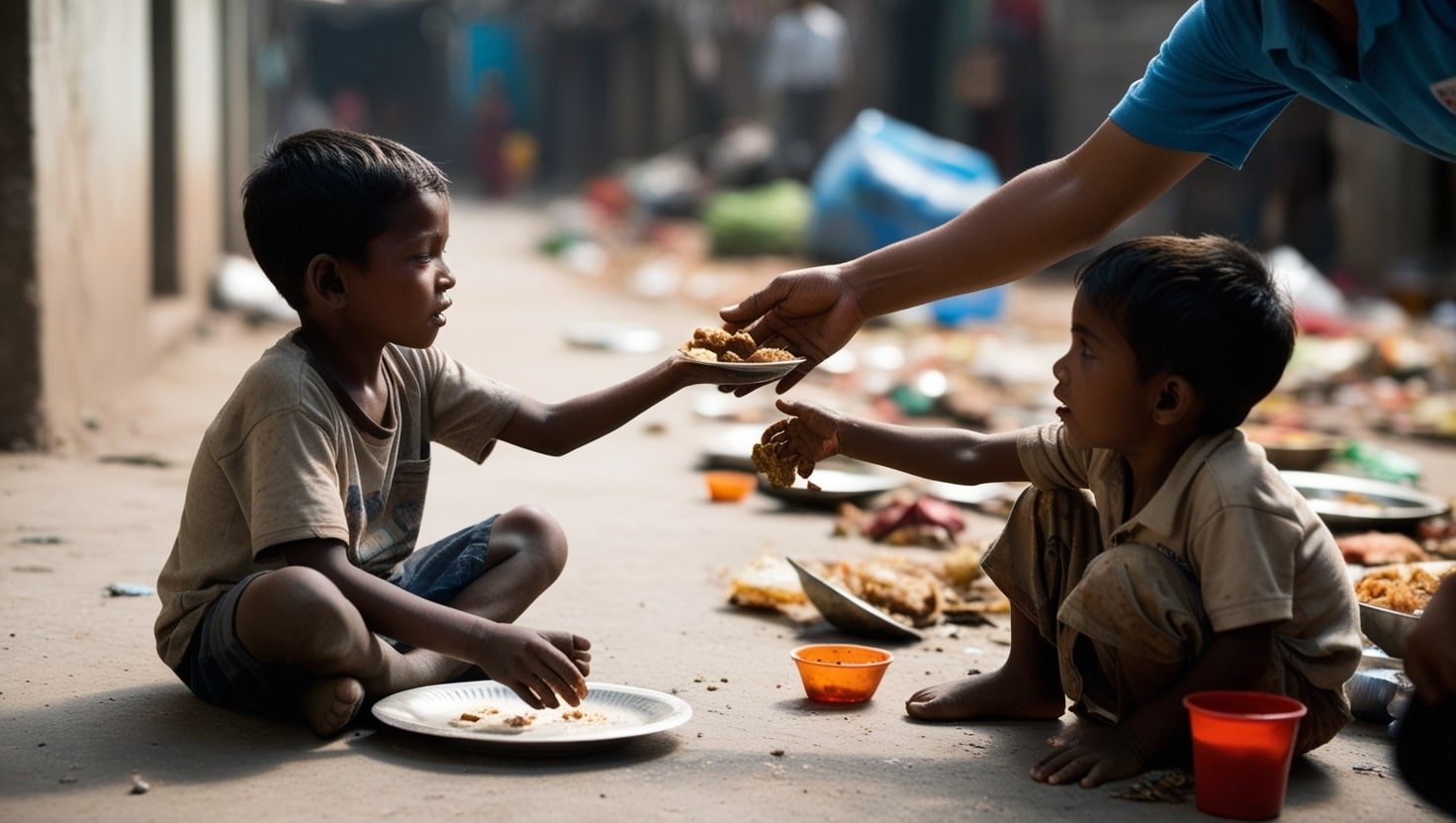Table of Contents
- The Cost of Food Waste and Why India Cannot Ignore It
The Cost of Food Waste and Why India Cannot Ignore It
Food waste is not just about throwing away leftovers. It has a real cost. In India, millions of people sleep hungry every night, yet vast amounts of food go to waste daily. The cost of food waste is huge. It affects our economy, our environment, and our society. Understanding this cost is the first step to solving the problem.
The Scale of Food Waste in India
India is one of the largest producers of food in the world. However, it also wastes a large share. According to the United Nations Environment Programme, India wastes over 68 million tonnes of food each year. That equals the food supply for millions of people. The cost of food waste here is not only financial. It is also moral and environmental.
For example, weddings, restaurants, and urban households often throw away edible food. At the same time, rural families and urban slum dwellers struggle for one meal a day. The scale of this problem makes it urgent to act now.
How much food is wasted in India annually?
The Economic Cost of Food Waste
The cost of food waste to the economy is massive. When food is wasted, the money spent on growing, transporting, and storing it is also wasted. Farmers lose income. Businesses lose profits. Consumers pay higher prices.
Studies show that food waste costs India billions of rupees every year. This includes direct losses like spoiled grains or vegetables and indirect costs like wasted labour and transport. For companies, food waste means higher operational costs. For families, it means more expensive meals.
The Environmental Cost of Food Waste
Food waste also harms the planet. Every grain of rice, every piece of fruit, and every litre of milk requires water, energy, and land to produce. When food is thrown away, all these resources go to waste.
The cost of food waste includes greenhouse gas emissions. Wasted food in landfills produces methane, a powerful gas that worsens climate change. In India, where agriculture already uses much of our water and energy, food waste only makes the crisis deeper.
Transition words like “therefore,” “as a result,” and “in addition” help us see the link. Therefore, reducing waste is not only about feeding people. It is also about protecting our natural resources.
The Social Cost of Food Waste
The social cost of food waste is perhaps the most painful. India still struggles with hunger and malnutrition. The Global Hunger Index often places India in the serious category. Millions of children suffer from stunted growth and undernutrition.
Yet food waste continues in cities, hotels, and even homes. This gap between abundance and need creates inequality. Every plate of wasted food is a missed chance to fight hunger. As a result, food waste adds to the suffering of the poor.
Why Companies Should Care

Businesses often see food waste as only an operational issue. However, the cost of food waste for companies goes much further. It damages brand reputation, increases costs, and weakens sustainability efforts. Customers today prefer companies that act responsibly.
By cutting down on waste, companies can save money, improve efficiency, and strengthen their corporate social responsibility (CSR). Food redistribution to NGOs can also build goodwill and social impact.
Food Waste and Hidden Costs
Many costs of food waste are hidden. For instance, when food is wasted, governments must spend more on waste management. Landfills fill faster. Municipalities spend more on collection and disposal. These costs come from taxpayer money.
In addition, wasted food can lead to public health problems. Poor waste handling attracts pests, spreads disease, and pollutes neighbourhoods. These hidden costs often go unnoticed but are very real.
Global Lessons for India
Other countries have shown solutions. France has laws preventing supermarkets from throwing away edible food. South Korea has strict waste segregation policies. These reduce waste and encourage recycling.
India can learn from these examples. Policies that support food donation, better storage, and awareness campaigns can reduce the cost of food waste. Partnerships between NGOs, companies, and the government are vital.
How Citizens Can Help
Reducing the cost of food waste is not only the job of the government or companies. Every citizen can act. Simple steps matter. Plan meals. Store food correctly. Share surplus food with those in need. Support NGOs that redistribute food.
Households generate a big share of waste in cities. Small changes in kitchens can save thousands of rupees and feed hungry people. In addition, citizens can press for better food policies and support local initiatives.
Frequently Asked Questions
1. What is the cost of food waste in India?
The cost of food waste in India runs into billions of rupees each year. It includes financial, environmental, and social costs.
2. How does food waste harm the economy?
Food waste reduces farmer incomes, increases costs for businesses, and raises prices for consumers. It also wastes labour and resources.
3. What is the environmental cost of food waste?
Food waste leads to methane emissions, wasted water, and land use. It also increases the pressure on waste disposal systems.
4. Why should companies care about the cost of food waste?
Companies face higher costs, loss of brand value, and missed CSR opportunities. Reducing food waste can improve profits and reputation.
5. How can I reduce food waste at home?
Plan your meals, store food properly, avoid bulk buying, and share surplus food. These steps lower waste and help society.
Conclusion
The cost of food waste is too high for India to ignore. It affects our economy, our environment, and our society. While the numbers are worrying, the solutions are within reach. Businesses, citizens, and the government must act together.
At Reshine Organisation, we work to rescue surplus food and deliver it to those in need. Your support can make a difference. Each donation helps us reduce waste, feed the hungry, and protect the planet.
Donate today to fight hunger and reduce food waste in India. Together, we can lower the cost of food waste and build a fairer future.




